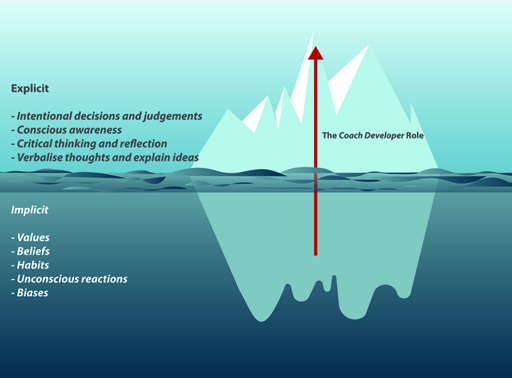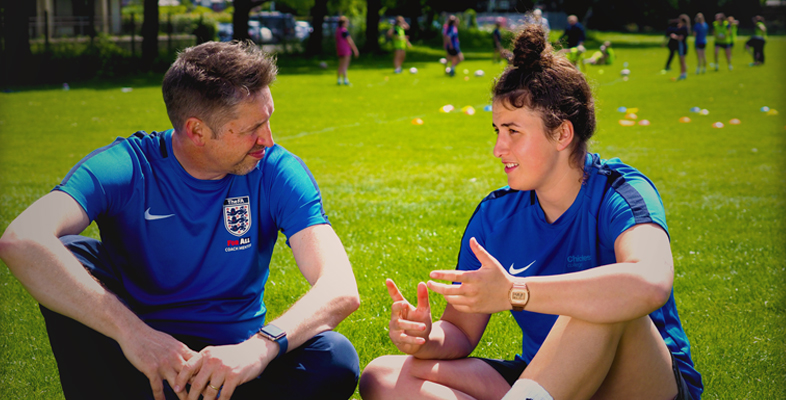5 Understanding coach developer expertise
Compared to coaching, there is relatively little research evidence that describes or explains coach developer expertise (Abraham, 2016). In the next two back-to-back activities you’ll consider a possible approach to articulating the expertise of a coach developer.
During these activities there are no claims that an evidence-based explanation of coach developer expertise is being presented. Instead the purpose is to prompt your thinking about what you do, or should do, if you want to develop your own expertise as a coach developer.
Activity 4 Coach developer expertise 1: Surfacing beliefs?
In this activity, you are asked to think about the meaning you attach to the term ‘surfacing beliefs’.
Read the following statement:
‘Surfacing values and beliefs is an important part of coach learning and development.’
- Using your personal interpretation of the statement, how much is this a key part of a coach developer’s expertise?
- With your response to the first question in mind, now consider Figure 10 and the accompanying description which talks about the ‘iceberg principle’. How much attention should a coach developer pay to this element of their expertise?

Description of Figure 10
Many aspects that impact on coaching practice and behaviour are implicit. They are taken for granted, they have become habits and stem from ideas, values and beliefs that are not consciously reflected on (e.g. the use of different instructional behaviours is often implicit). Therefore, they are very difficult to change because either coaches are unaware that they hold them, or because they seem so obvious to coaches that they don’t warrant their attention.
The process that coach developers undertake is to make coaches think and reflect about the ideas, values and beliefs they have. It is to make what is implicit explicit: to make what is unconscious, conscious and therefore open to reflection, discussion and change. This is represented in Figure 10.
Discussion
- Some coaches may find change harder if they don’t begin to understand why they use the behaviours they do and how their deeply held ideas, values and beliefs shape this. So, for those working as coach developers it is important to help make coaches more self-aware about their beliefs and where these beliefs might come from.
- In whatever specific role you undertake as a coach developer, guiding coaches to become more self-aware takes real expertise. Being able to support and challenge coaches might be called a soft skill, but it is hard to do well. This is why surfacing values and beliefs is a key component of a coach developer’s role and a significant marker of expertise.

